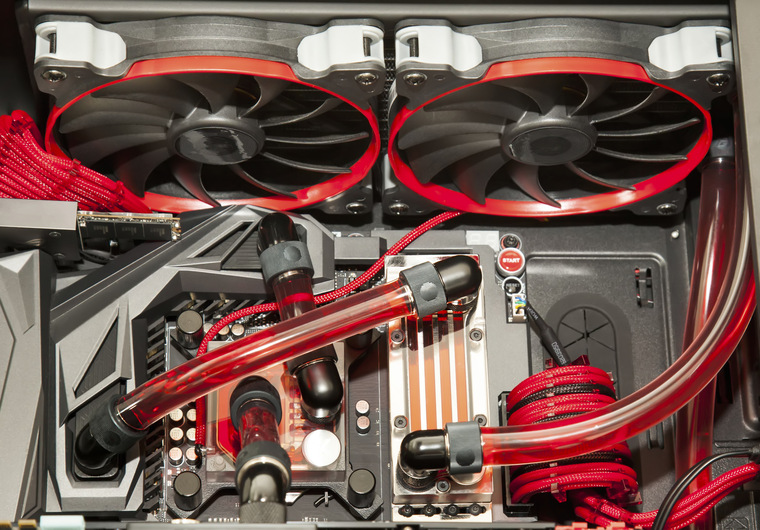
When choosing between air cooling and liquid cooling for your PC, there are various factors to consider as each cooling method has its pros and cons. Here's a comparison of air and liquid cooling to help you make an informed decision:
Air cooling:
Pros:
-
{eleven}
-
Maintenance: Air coolers require virtually no maintenance. You won't have to worry about pump failures, coolant leaks, or refilling.
-
Price: High-quality air coolers are often more affordable than all-in-one (AIO) liquid coolers with similar cooling performance.
-
Quiet Operation: Many modern air coolers are designed for quiet operation, with larger, quieter fans and optimized heatsinks.
-
Easy to Install: Air coolers are relatively easy to install, making them suitable for beginners and those who prefer a simple setup.
Reliability: Air coolers have fewer components that can potentially fail than liquid cooling systems. This makes them generally more reliable in the long run.
Cons:
-
Bulky Size: Some high-end air coolers can be large and heavy, which may not fit in smaller cases or put stress on the motherboard.
-
Less aesthetically pleasing: Air coolers can obstruct the view of your PC's components and RGB lighting if aesthetics are a priority.
Liquid Cooling (AIO or Custom Circuit):
Pros:
-
Thermal Performance: Liquid cooling often provides superior thermal performance, making it ideal for overclocking and cooling high-end CPUs and GPUs.
-
Aesthetics: Liquid coolers, especially custom ones, can provide a cleaner, more attractive appearance with tubing and RGB lighting.
-
Flexibility: Custom liquid cooling loops allow you to cool multiple components (CPU, GPU, etc.) in a single loop, offering more control and customization options.
-
Compact: Liquid cooling is suitable for compact cases that may not fit air coolers.
Cons:
-
Difficulty: Liquid cooling systems, especially custom cycles, are more complex to install and require careful planning and maintenance. They can be intimidating for newbies.
-
Cost: Liquid cooling solutions, especially custom cycles, can be significantly more expensive than high-end air coolers. AIO liquid coolers are also more expensive than budget air coolers.
-
Maintenance: Liquid cooling systems require periodic maintenance, including cleaning, leak testing, and adding coolant (special circuits).
-
Chance of Leaks: Although relatively uncommon, liquid cooling systems are susceptible to leaks, which can damage components if not detected and corrected promptly.
-
Noise Level: Some AIO liquid coolers may produce pump noise, although this has improved with newer models.
To summarize, air cooling is a reliable and economical choice for most users, especially those who prioritize ease of use and low maintenance. Liquid cooling, on the other hand, is superior in thermal performance and aesthetics, but has higher cost and complexity. Your choice should suit your specific needs, budget, and willingness to deal with the additional maintenance and potential risks associated with liquid cooling.






